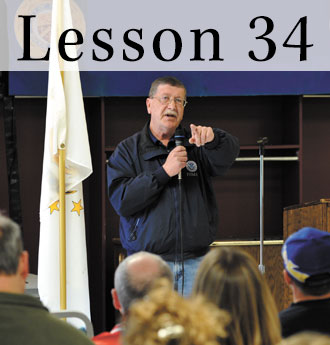The Resource Center » Level 3 » Unit 6 »
Lesson 34: What Is the Importance of Civic Engagement to American Constitutional Democracy?

Lesson Purpose
This lesson describes ways that Americans can participate in civic life to help achieve the ideals they have set for themselves and their nation, ideals that were examined in Units One and Two. It explains how civic engagement can advance both self-interest and the common good. It also discusses issues related to voting and voter turnout.
When you have finished this lesson, you should be able to explain why Americans need to be engaged in civic affairs. You also should be able to identify opportunities for civic engagement through voluntary associations and nongovernmental organizations and participation in local, state, and national politics. Finally, you should be able to evaluate, take, and defend positions on challenges associated with voting and other forms of participation in civic life in the United States.
Lesson Objectives
- explain why Americans need to be engaged in civic affairs,
- identify opportunities for civic engagement through voluntary associations and nongovernmental organizations and participation in local, state, and national politics, and
- evaluate, take, and defend positions on challenges associated with voting and other forms of participation in civic life in the United States.
Lesson Terms
Lesson Primary Sources
A review of American representational government in the 1830s, focusing on the reasons for success in America versus attempts and failures in other places. The work was borne from a young Tocqueville and Gustave de Beaumont having been sent by the French government to study the American prison system. Their notes included other aspects of American society, including political life.






